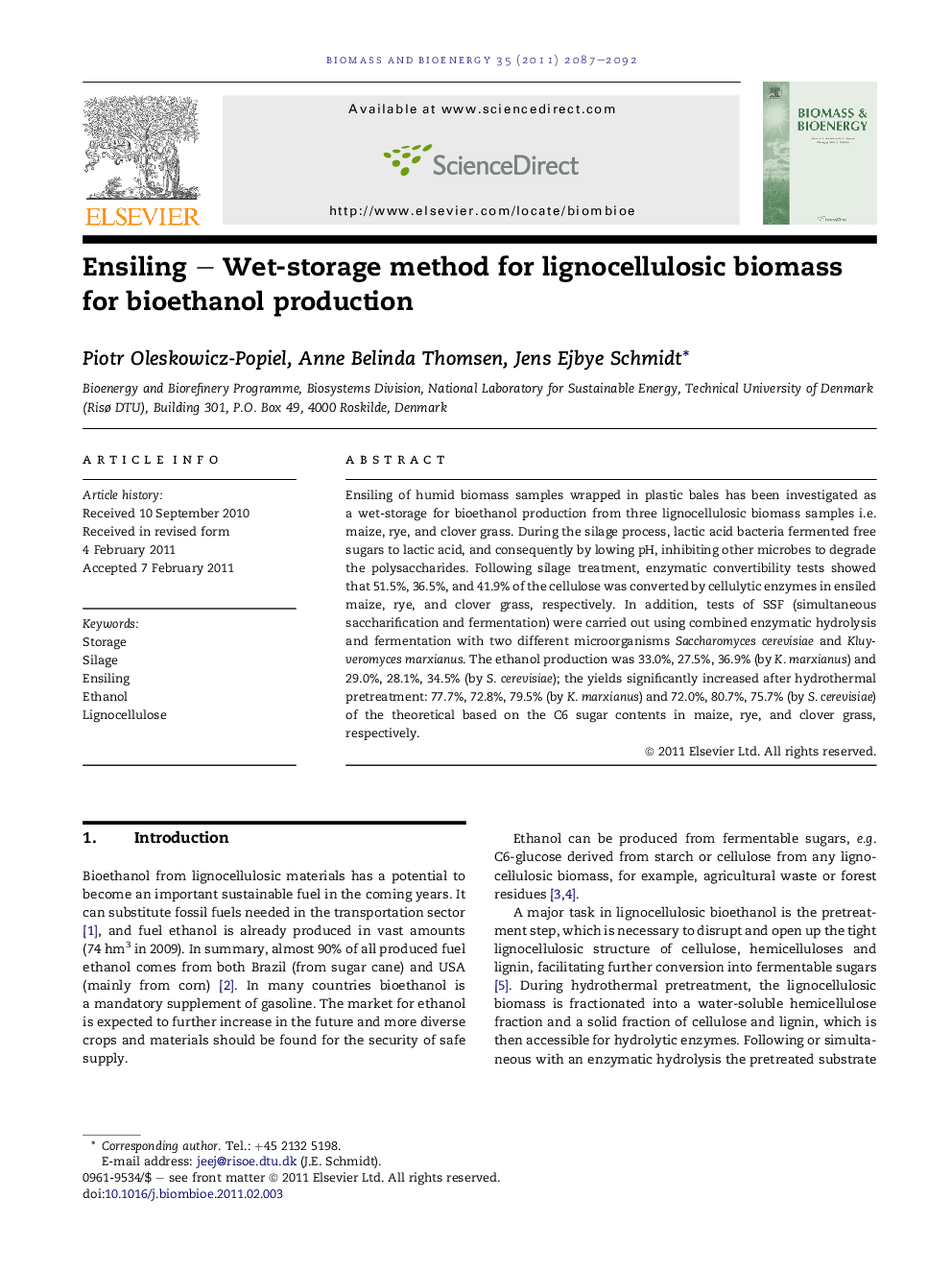| Article ID | Journal | Published Year | Pages | File Type |
|---|---|---|---|---|
| 677759 | Biomass and Bioenergy | 2011 | 6 Pages |
Ensiling of humid biomass samples wrapped in plastic bales has been investigated as a wet-storage for bioethanol production from three lignocellulosic biomass samples i.e. maize, rye, and clover grass. During the silage process, lactic acid bacteria fermented free sugars to lactic acid, and consequently by lowing pH, inhibiting other microbes to degrade the polysaccharides. Following silage treatment, enzymatic convertibility tests showed that 51.5%, 36.5%, and 41.9% of the cellulose was converted by cellulytic enzymes in ensiled maize, rye, and clover grass, respectively. In addition, tests of SSF (simultaneous saccharification and fermentation) were carried out using combined enzymatic hydrolysis and fermentation with two different microorganisms Saccharomyces cerevisiae and Kluyveromyces marxianus. The ethanol production was 33.0%, 27.5%, 36.9% (by K. marxianus) and 29.0%, 28.1%, 34.5% (by S. cerevisiae); the yields significantly increased after hydrothermal pretreatment: 77.7%, 72.8%, 79.5% (by K. marxianus) and 72.0%, 80.7%, 75.7% (by S. cerevisiae) of the theoretical based on the C6 sugar contents in maize, rye, and clover grass, respectively.
► Ensiling process can be used as a wet-storage for crops like maize, rye or clover. ► Ensiling can keep the “freshness” of the crops. ► Ensiling prevents contamination of wet biomass. ► Noticeable amount of ethanol was produced already from only ensiled crops.
